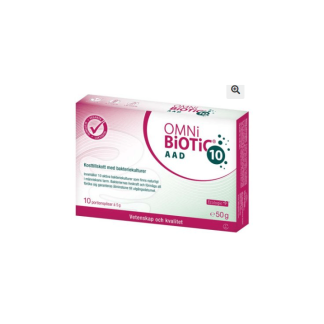Personalized nutrition, an innovative approach to health and wellness, recognizes our unique dietary needs derived from our genetic makeup, lifestyle habits, and the specific microbiota inhabiting our gut. This guide delves deep into personalized nutrition based on health tests and explores how supplements, available at GetTested.shop, can aid in fulfilling your individual nutritional requirements.
Table of Contents
- Understanding Personalized Nutrition
- The Role of Health Tests
- Interpreting Your Health Test Results
- Tailoring Your Nutrition Based on Health Tests
- Top Supplements to Consider Based on Common Health Test Results
- Frequently Asked Questions about Personalized Nutrition and Health Tests
Understanding Personalized Nutrition
Personalized nutrition tailors dietary recommendations to individual needs, considering factors such as genetics, metabolism, gut microbiota, and lifestyle. Unlike the ‘one size fits all’ approach, personalized nutrition optimizes health by providing the right nutrients at the right time. Recent advances in biotechnology have enabled us to understand the complexity of human physiology, thereby shaping the way we view nutrition.
Personalized nutrition begins with understanding that our dietary needs are as unique as our fingerprints. Two individuals with the same age, gender, and physical condition can have very different responses to the same diet. This diversity can be traced back to our genes, gut microbiota, and lifestyle factors such as sleep, stress, and physical activity levels. By taking into account these factors, personalized nutrition aims to promote optimal health and prevent disease.
The Role of Health Tests
Health tests form the cornerstone of personalized nutrition. These tests range from genetic testing, which can reveal predispositions to certain health conditions and nutrient needs, to blood tests that can identify micronutrient deficiencies. Health tests offer a detailed snapshot of an individual’s health status and are crucial in designing personalized nutritional strategies.
Health tests may evaluate a variety of factors such as nutrient levels, hormonal balance, metabolic health, immune system functioning, and the composition of gut microbiota. Based on these tests, dietitians and nutritionists can recommend a diet that addresses any deficiencies or imbalances and supports overall health. Health tests can also track the progress of a personalized nutrition plan, allowing adjustments to be made as needed.
Interpreting Your Health Test Results
Interpreting health test results can be challenging due to the wealth of information provided. However, with the guidance of health professionals and reliable resources, they can become a powerful tool in managing your health. Health test results can highlight areas of concern, validate suspicions, and reveal unexpected findings that can significantly impact your health and nutrition strategy.
Understanding your health test results empowers you to take charge of your health. Whether it’s a deficiency in a certain vitamin, a hormonal imbalance, or a specific genetic predisposition, being informed about your health status allows you to make informed dietary choices. It also encourages an open dialogue with your healthcare provider about your nutrition and overall health.
Tailoring Your Nutrition Based on Health Tests
Once you understand your health test results, the next step is to tailor your nutrition accordingly. This involves making informed dietary choices, balancing macronutrients, optimizing micronutrient intake, and considering supplements if necessary. For instance, if your health tests reveal low vitamin D levels, you might need to increase your intake of vitamin D-rich foods or consider a Vitamin D3 supplement.
It’s important to remember that while health tests provide valuable insights, they are just one piece of the puzzle. Personalized nutrition also considers factors such as lifestyle habits, physical activity, sleep patterns, stress levels, and personal preferences. Therefore, creating a personalized nutrition plan may also involve making lifestyle adjustments along with dietary changes.
Top Supplements to Consider Based on Common Health Test Results
Supplements can play a significant role in a personalized nutrition plan, especially when it’s challenging to get certain nutrients from diet alone. Below are some supplements you might consider based on common health test results:
- Fisetin – A flavonoid with potent antioxidant properties, beneficial in managing oxidative stress.
- Curcumin Phytosome – Known for its anti-inflammatory effects, it supports joint health and cardiovascular function.
- Alpha-Lipoic Acid – This compound helps with energy production in cells and may support nerve health.
- Saw Palmetto Extract – Frequently used in men’s health to support prostate health.
- Nattokinase – An enzyme derived from fermented soybeans, known to support heart and circulatory health.
Frequently Asked Questions about Personalized Nutrition and Health Tests
1. What is personalized nutrition?
Personalized nutrition is a dietary approach that tailors nutrient intake and lifestyle behaviors to the individual’s unique needs and health goals based on their genetic makeup, gut microbiota, biochemical characteristics, metabolism, and lifestyle habits.
2. How can health tests help in personalized nutrition?
Health tests can provide detailed insights into an individual’s health status, such as genetic predispositions, nutrient deficiencies, hormonal imbalances, and gut microbiota composition. These insights form the basis for developing a personalized nutrition plan.
3. Can personalized nutrition prevent diseases?
While personalized nutrition can’t guarantee disease prevention, it can significantly reduce the risk of developing chronic diseases by addressing nutrient imbalances, promoting a healthy lifestyle, and catering to individual health needs.
4. How do I interpret my health test results?
Interpreting health test results should be done with the assistance of a healthcare provider or a registered dietitian. They can help you understand the implications of your results and guide you in making dietary and lifestyle changes.
5. Are dietary supplements necessary in personalized nutrition?
While the primary focus of personalized nutrition is to encourage a healthy and balanced diet, dietary supplements can play a role when nutrient needs are high or when it’s challenging to get enough of certain nutrients from food alone. However, the use of supplements should always be guided by a healthcare professional.
 EU-countries,
EU-countries,  UK and
UK and  Norway
Norway


 English
English

